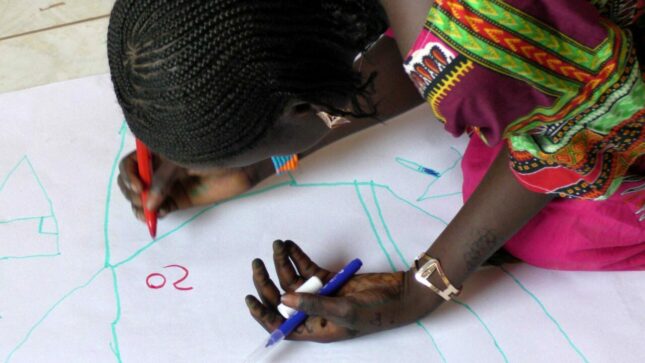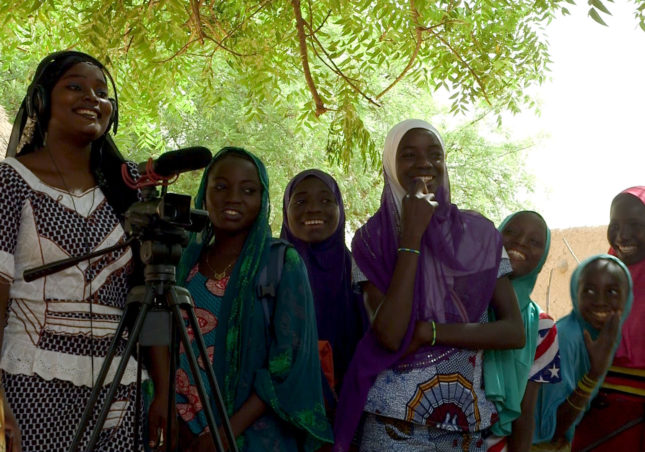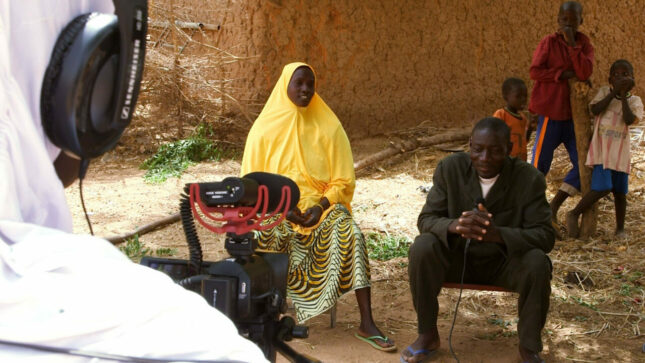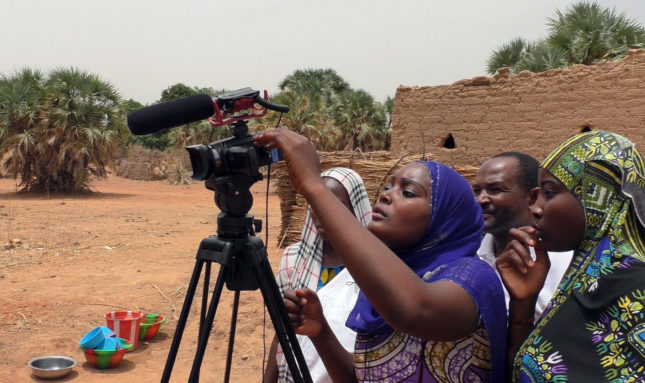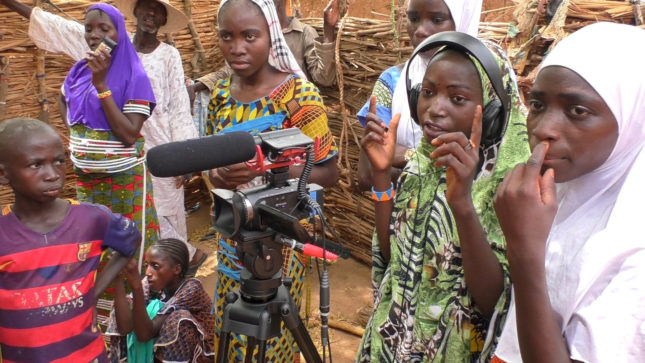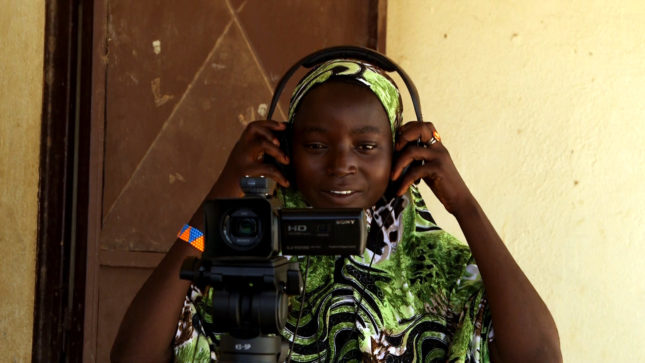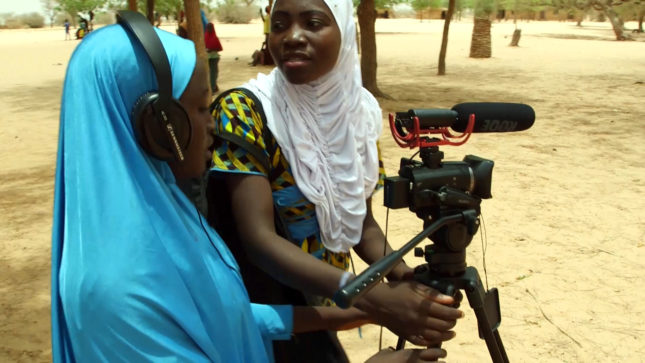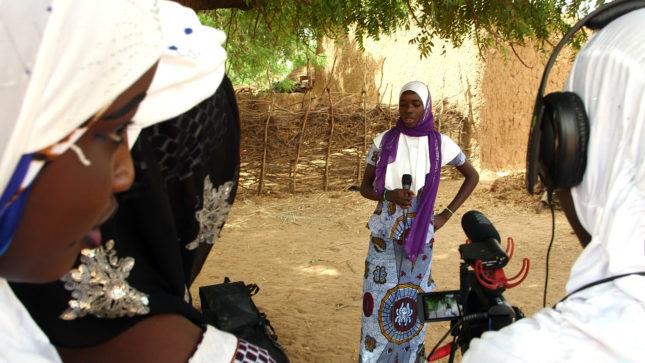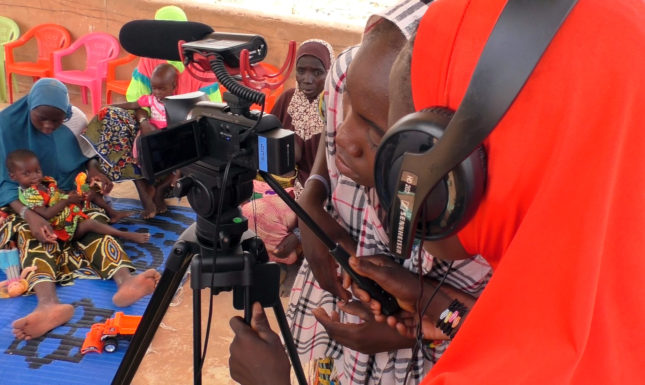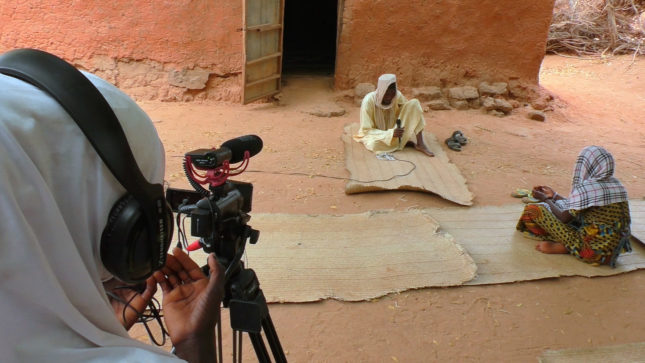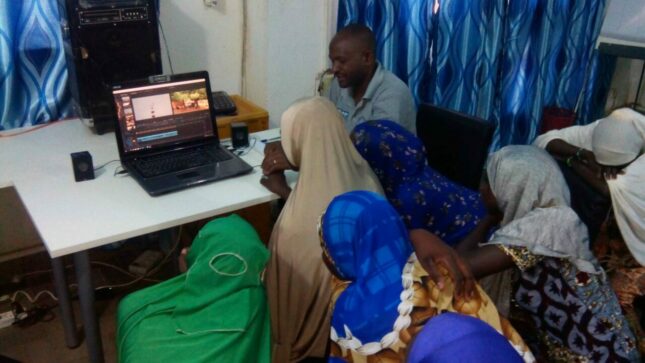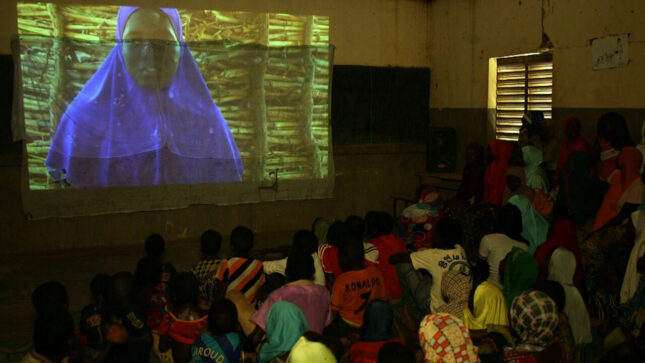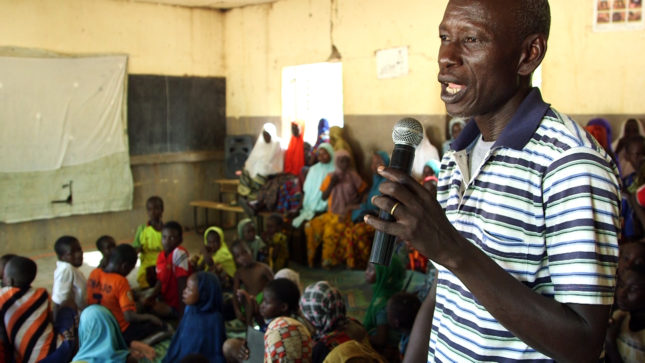Weyborey Ma Farhan (Girls get emancipated)
Empowerment and inter-generational dialogue through Participatory Video
DIFFICULTIES OF EARLY MARRIAGE
One of the main challenges within the context of the region requiring sensibilization is the health risks associated with child marriage. Is indeed very common for women to experience obstructed childbirth, which is a consequence of a girls’ pelvis being too small to deliver a foetus. Many times, obstructed childbirth leads to fistulas and urinary incontinence. The consequences may in turn lead to rejection from the family or the community, feelings of humiliation, ostracism and depression.
Early marriage translates also in a deprivation of an autonomous life. It accounts for one of the main reasons to drop out of school with the consequence of girls being economically dependent on their husbands and the possibility for autonomous agency shrinking. The objective of the Plan International program is to transform their roles within the community, present and future families and to generate a process of empowerment that leads to claiming their right to state their own opinions and to contribute to decision making processes.
CHALLENGING TRADITIONAL REPRESENTATIONS & EMPOWERMENT
The position of power acquired through the dynamic of the participatory video that allowed for young girls to pose questions to traditional leaders have shown that the girls have enormous potential for learning, showing that they are successful in other areas besides those traditional assigned to them.
The situation requires a widespread process of communication and sensitisation on a multidimensional level, involving young girls and boys, their families, and the community religious authorities that play a key role in the dynamic surrounding early marriage. When an imam, the religious authority of the community, states that a girl should marry from the age of 18 instead of the age of 13, this can have a relevant impact on the conception of the appropriate age to marry and consequently on the practice itself of early marriage. Widespread awareness together with the appropriation of skills for an autonomous living, opportunities for education and employment may constitute the engine for a progressive but transformative change.
AN ENDOGENOUS EVALUATION PROCESS
With the participatory video the reality appears as it is, there is no filter. The facilitators provides the tools and the techniques for the making of the video but the participants are the active agents of the collective self-production and deliberately choose how to present and represent themselves and what they want to show to their communities. The audio-visual material displays one the one hand how the issue of early marriage is experienced and thought about by the girls and their communities, producing a perspective on the social dynamic and underlaying processes of early marriage directly from the subjects that inhabit that same world. On the other hand, the self-representations made visible through the participatory video highlights the transformations at place within the community and the extent of the efficacy of the intervention. Additionally, due to the endogenous nature of the evaluation process there is a more reliable and truthful exchange of information and knowledge.
INTERGENERATIONAL DIALOGUE LAUNCHED BY THE PARTICIPATORY VIDEO
The girls have learnt the technicalities of the video and subsequently visited members of several communities asking important questions concerning child marriage and its consequence. They have questioned fathers of girls, chefs of village, imams and religious authorities.
Dialogue has been further fostered through a cycle of screenings of the final film within multiple villages. The film conveys the views and positions of young girls belonging to the community, manifesting itself as an amplification of their voices, their needs and aspirations. The film also represents the community itself, the views of traditional authorities and in some cases, the discrepancies existing among them and the girls. The visualization produces effects and reactions at the community and individual levels that are visible in the comments and discourses that emerge during the screenings.
PARTNERS
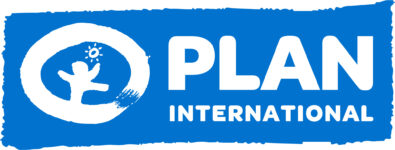
Plan International Belgium NGO & Plan International Niger
Photographs / Videos ©2019 Federico Varrasso / Plan International Belgium
YEAR
2018 – 2019


